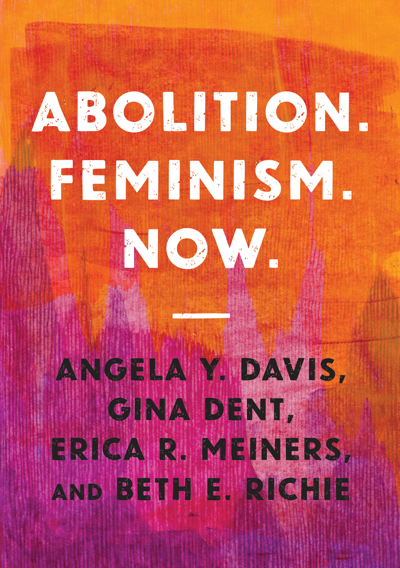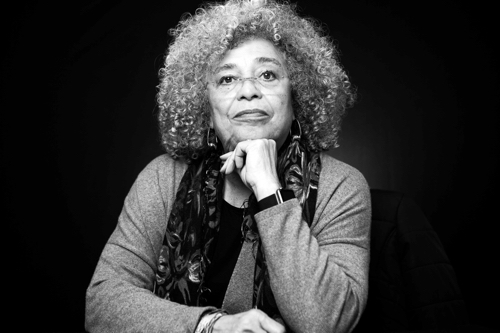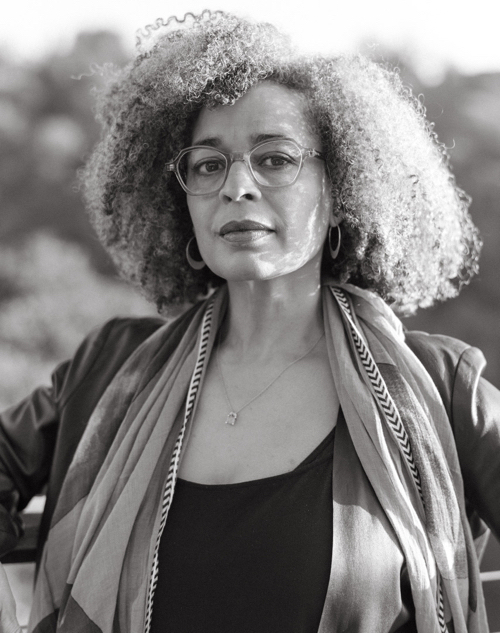A new book, authored by UC Santa Cruz Professor Emerita Angela Y. Davis and Associate Professor Gina Dent with colleagues Erica R. Meiners and Beth E. Richie, is garnering national attention for its pathbreaking examination of abolition and feminism in the 21st century.
Abolition. Feminism. Now. is an urgent call by the four leading scholar-activists for a truly intersectional, internationalist, abolitionist feminism. Published by Haymarket Books, it demonstrates that abolitionism and feminism stand shoulder-to-shoulder in fighting a common cause: the end of the carceral state, with its key role in perpetuating violence, both public and private, in prisons, in police forces, and in people's homes. Abolition. Feminism. Now. argues that abolitionist theories and practices are at their most compelling when they are feminist; and a feminism that is also abolitionist is the most inclusive and persuasive version of feminism for these times.
Nia T. Evans of the Boston Review writes, “Abolition. Feminism. Now. is a demand in every way. It pushes readers not to accept simple stories but to embrace complexity and new ways of thinking. But it is also a celebration of feminist agitators and freedom fighters who undermine the carceral state while building new sources for safety, repair, and accountability. Of an ever-changing, growing, and evolving movement that puts survivors at the center of its analysis, not the periphery. And of a historic political struggle that considers freedom worth the fight. And, in the end, the authors make it clear that abolition feminism isn’t on its way; it’s already unfolding all around us.”
The full article and interview with the authors is available online. The collaborating scholars were also recently interviewed on Democracy Now and in Harper’s Bazaar and Jezebel.
Davis, UCSC professor emerita of history of consciousness and feminist studies, is a widely respected activist, writer, and lecturer whose work has long focused on prisons, police, abolition, and the related intersections of race, gender, and class.
Dent, associate professor of feminist studies, history of consciousness, and legal studies, editor of Black Popular Culture, and a prison abolition activist for more than 25 years, developed UCSC’s groundbreaking public scholarship initiative, Visualizing Abolition, together with Rachel Nelson, director of UCSC’s Institute of the Arts and Sciences. The four-year program of art exhibitions, public events, postdoctoral fellowships, a faculty working group, and curriculum development aims to shift the social attachment to prisons through art and education.
"I’ve always been interested in the role visuality plays in sustaining our understanding of our social and political worlds, and in particular the stability of the prison in our landscape,” says Dent. “In academia, we often assume this understanding is driven by the research enterprise, but it is driven just as much by our popular and visual culture. Art is an essential arena for addressing challenges and moving us forward. It provides another realm for the generation of ideas—not merely a reflection of that which we already know, or even discover.”
Visualizing Abolition is the largest program of its kind in the country. It has included such critically-acclaimed projects as Solitary Garden, an ongoing participatory public sculpture and garden project by award-winning artist jackie sumell in collaboration with Tim Young, who is currently on death row in San Quentin State Prison, and Barring Freedom, a group exhibition of work by contemporary artists including Hank Willis Thomas and Sadie Barnette. Originally on view at San José Museum of Art and now traveling to New York, the exhibition challenges the dominant ways people see and understand the complex nexus of policing, surveillance, detention, and imprisonment that makes up the nation’s prison industrial complex. Online events, a curated series of original music videos, abolition and art education materials, and information about exhibitions can be accessed online.
Abolition. Feminism. Now.’s other authors are Erica R. Meiners, professor of education and women’s, gender, and sexuality studies at Northeastern Illinois University, and Beth E. Richie, director of the Institute for Research on Race and Public Policy, professor of Black studies and criminology, law, and justice at the University of Illinois at Chicago.
All four will participate in a panel discussion at UCSC on May 21, 2022 that will be open to the general public.



